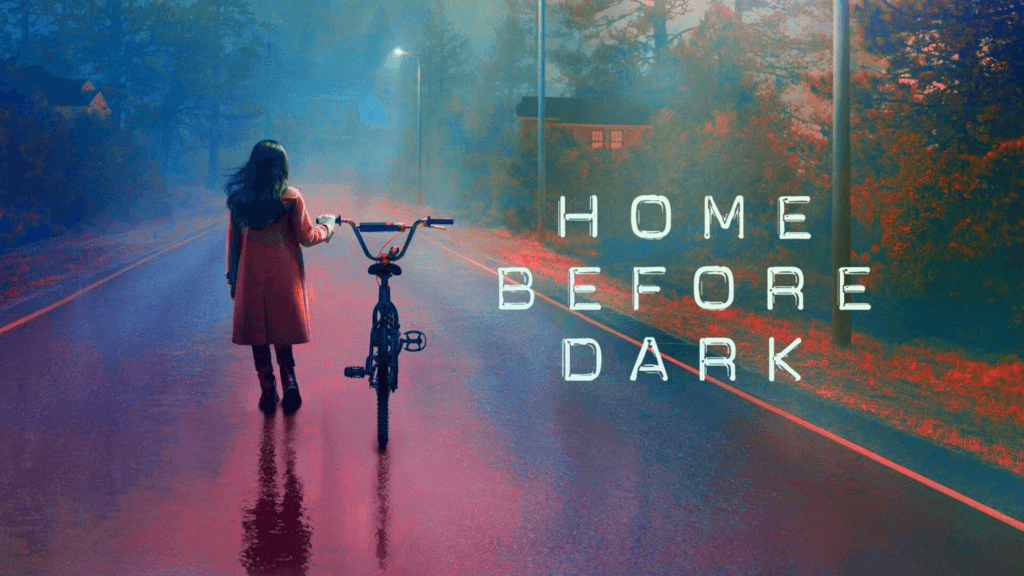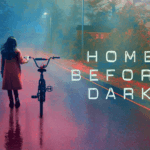Television is no stranger to psychological thrillers, but in 2014, CBS brought something new to the table with Stalker, a series that blended gritty, real-world fears with the intricate dance of obsession, power, and survival. At its heart was a dynamic pairing of talent: Maggie Q, known for her fierce action roles, and Dylan McDermott, who brought a nuanced, brooding energy to the show. Together, they guided us through the unsettling landscape of stalking crimes—both psychological and physical. But there’s more to Stalker than meets the eye, so let’s dive into why this show captivated its audience despite its brief run.
The Allure of the Unseen Threat
At its core, Stalker is about fear, but not the immediate, jump-scare kind of fear. Instead, it taps into something far more insidious: the creeping dread of being watched, followed, and ultimately controlled by forces beyond our understanding. The show explores stalking as a phenomenon that often escalates in intensity, and how the victims’ lives are warped by this looming threat. By shining a spotlight on the intersection between personal boundaries and violation, Stalker captures something visceral that so many of us can relate to—whether it’s online harassment, unwanted attention, or the paranoia of being observed in our most private moments.

Maggie Q: The Anti-Hero We Didn’t Know We Needed
Maggie Q plays Lieutenant Beth Davis, head of the LAPD’s Threat Assessment Unit. What sets Beth apart from the typical police procedural protagonist is her combination of steely professionalism and personal vulnerability. Maggie Q excels in bringing a layered complexity to her character—on one hand, Beth is driven by a fierce desire for justice and is ruthlessly effective at her job. On the other, she is deeply haunted by her own history as a stalking victim, which brings an emotional resonance to her role. Watching Maggie Q balance these dual sides—cool, calculated protector by day, scarred survivor by night—adds depth to every scene.
Beth Davis is not the invincible, untouchable cop we so often see on TV. She’s strong, but her strength is born from trauma, not a superhero complex. Maggie Q’s performance takes us into the emotional underbelly of her character’s psyche, showing us how personal pain can forge an empathetic warrior. It’s intellectual in the way it challenges our traditional perceptions of what makes someone “tough.” It’s also a reminder that the heroes we need are often the ones still working through their own demons.

Power Dynamics and Obsession
Stalker doesn’t shy away from confronting the twisted psychology behind obsessive behavior. In doing so, it invites viewers to consider the darker aspects of human nature—why do people fixate on others, and how do those fixations manifest? The show delves into themes of control, fear, and emotional manipulation. But it also takes an intellectual approach by examining the varying types of stalkers: the predatory, the rejected lover, the resentful, and the intimacy-seeking.
Dylan McDermott’s character, Detective Jack Larsen, complements this exploration with his own morally grey areas. Unlike Beth, Jack is not entirely virtuous. He carries baggage, a murky past, and a streak of recklessness that makes him both unpredictable and compelling. His dynamic with Beth is fascinating—not a romantic partnership, but one built on mutual respect, tension, and shared trauma. Their relationship underpins the series, adding a cerebral layer to the more visceral cat-and-mouse games of the cases they investigate.
The Gritty Realism: A Double-Edged Sword
What makes Stalker intellectually stimulating is its insistence on grounding its stories in reality. The crimes depicted on the show are loosely based on real-life cases, pulling from headlines and case studies. This adds a level of gravitas to the series, making the viewer question how much of our daily lives are vulnerable to the same kind of invasive scrutiny. But the show also walks a fine line, balancing between the lurid and the educational. It doesn’t glorify the violence or obsession, but it does highlight the serious consequences of unchecked behavior in an increasingly digital age.


A Dark Mirror of Society
Stalker forces us to look into the mirror and ask uncomfortable questions. How often do we overshare on social media? How much of our lives do we unknowingly broadcast to strangers? The show’s exploration of voyeurism and digital surveillance feels more prescient today than ever. As our world becomes more connected, the lines between public and private life blur, and Stalker was ahead of its time in warning us of these dangers.
But the show’s real genius lies in its ability to tap into the primal fears we all carry—the fear of being vulnerable, the fear of losing control, and the fear that someone, somewhere, could be watching us.
Why Did Stalker End So Soon?
Despite its intriguing premise and a strong cast, Stalker only ran for one season. The abrupt cancellation left many fans disappointed. Some critics argued that its dark themes were too heavy for mainstream audiences, while others felt the show lacked the necessary emotional payoff. But there’s something intellectually satisfying in the idea that Stalker didn’t try to sugarcoat its subject matter. It left its audience uncomfortable—and that, in a way, was the point. It didn’t offer easy resolutions because, in the real world, fear and obsession don’t wrap up neatly in 45 minutes.


The Legacy of Stalker
While it may not have enjoyed a multi-season run, Stalker left a lasting impression on the psychological thriller genre. It pushed the boundaries of TV storytelling, combining cerebral insights with raw, emotional intensity. And at the center of it all was Maggie Q, whose portrayal of Beth Davis remains one of the most compelling performances in her career. Through Stalker, we were reminded that sometimes the scariest monsters aren’t the ones hiding in the shadows, but the ones standing in plain sight, staring right at us.
If you’re in the mood for a show that keeps you on edge while making you think, Stalker still stands as a dark, thought-provoking experience. It’s a series that forces you to ask: Are you being watched? Or is it all in your head?
Either way, Stalker will make you double-check your locks. Just in case.









